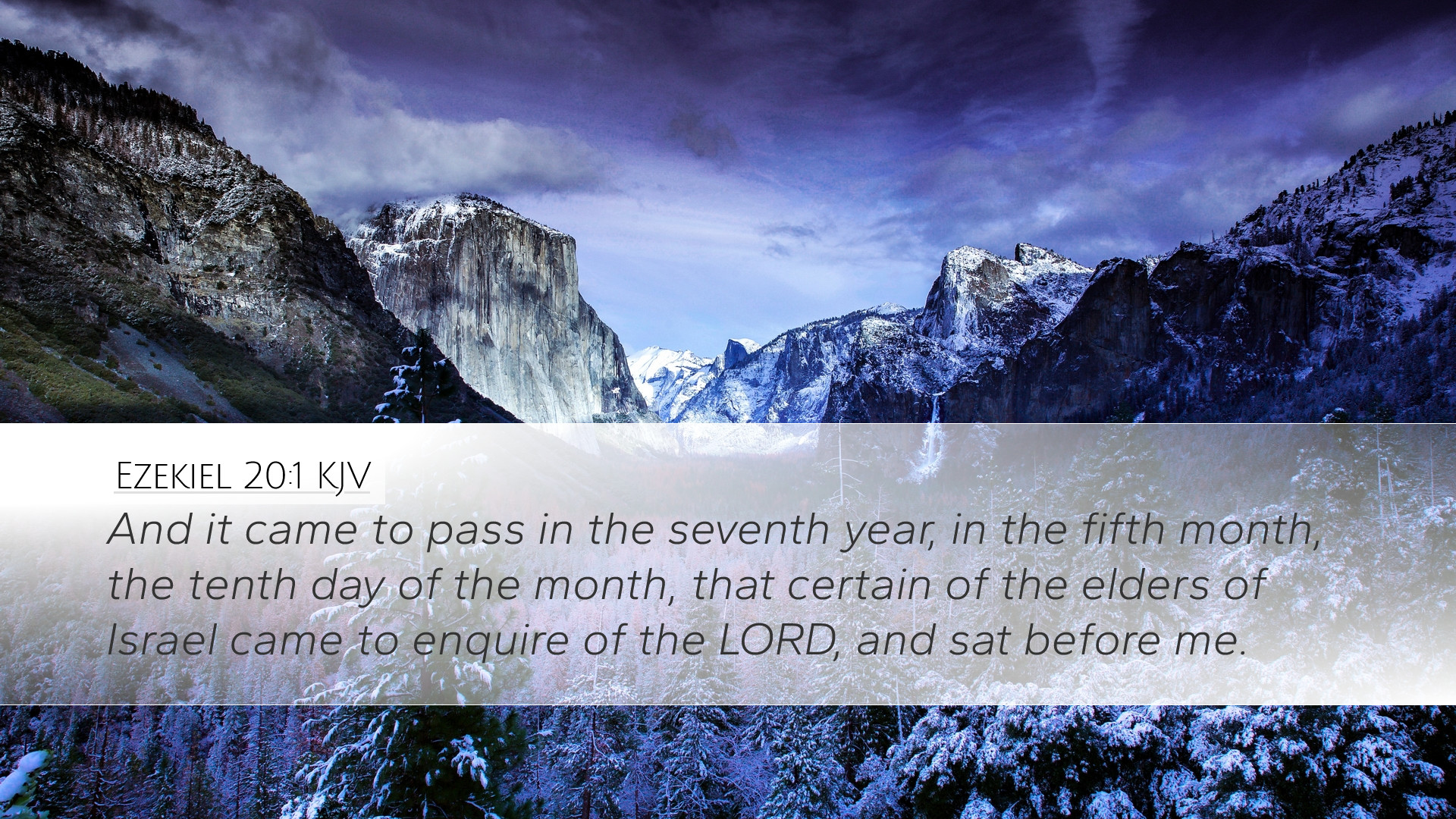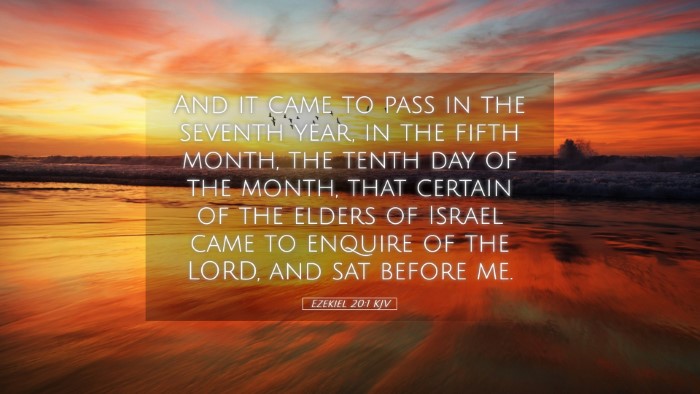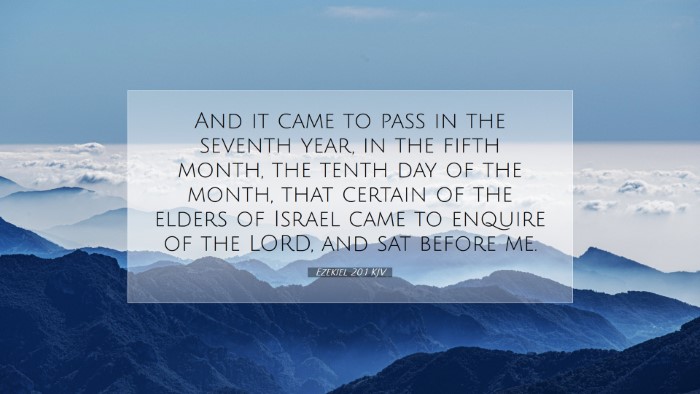Ezekiel 20:1 - A Comprehensive Commentary
The verse Ezekiel 20:1 states, "And it came to pass in the seventh year, in the fifth month, the tenth day of the month, that certain of the elders of Israel came to inquire of the Lord, and sat before me." This verse serves as an introduction to a critical moment in the prophetic ministry of Ezekiel, highlighting the spiritual conditions of Israel and their relationship with God.
Contextual Background
The historical and cultural context of Ezekiel's prophecy is essential. The prophet was active during a tumultuous period for the nation of Israel, specifically the Babylonian exile. This setting influenced both the message he delivered and the audience he addressed.
- Historical Setting: Ezekiel's ministry unfolded during Judah's captivity in Babylon, following the destruction of Jerusalem in 586 B.C. The elders' visit highlighted a longing for guidance amid despair.
- Spiritual Condition: The elders represented a remnant of leadership among the exiles, who sought divine counsel but were steeped in a legacy of rebellion against Yahweh.
Analysis of the Text
In this verse, three significant components stand out: a timing indicator, the action of the elders, and their purpose.
Timing Indicator
Ezekiel notes the specific date as a marker indicating a pivotal moment. The use of the seventh year, fifth month, and tenth day correlates to the Babylonian calendar, underscoring God's attentiveness to the timeline of Israel's history.
The Action of the Elders
The elders coming to inquire of the Lord suggests a recognition of their need for divine revelation. This act can signify:
- Desperation for Direction: In their disorientation, the elders recognized the importance of seeking God's wisdom.
- Reconciliation Efforts: The act of inquiring reflects a desire for restoration and understanding of their covenant relationship.
Purpose of Inquiry
The elders' inquiry was likely motivated by various factors:
- Seeking Guidance: Leadership among the exiled Israelites understood the necessity of seeking God's favor and direction in uncertain times.
- Understanding Judgment: They may have sought clarity on their collective plight, trying to comprehend God's actions against them.
Theological Insights
This passage dives into significant theological implications regarding God's communication with humanity, the seriousness of sin, and the hope for restoration.
The Nature of Divine Communication
This event illustrates God's willingness to engage with His people, emphasizing that He remains accessible even in judgment. Matthew Henry notes that God's willingness to answer inquiries from the exiles showcases His grace amidst their turmoil.
Human Condition and Sin
The elders' visit acts as a mirror reflecting the human condition: a constant need for God's guidance. Albert Barnes remarks on the pervasive ignorance of sin leading to judgment, reiterating the need for repentance among the elders.
Hope of Restoration
Despite their sinful state, Ezekiel shows that there is still hope for restoration and reconciliation. Adam Clarke emphasizes that genuine inquiry can pave the way for divine revelation and correction, urging leaders and congregants to seek God earnestly.
Applications for Today
The themes in Ezekiel 20:1 offer profound applications for contemporary readers, encouraging a posture of humility and a pursuit of divine wisdom.
- Leaders Seeking Divine Guidance: Church leaders and ministry heads must model the example of the elders by humbly seeking God's direction in their endeavors.
- Understanding Judgment: Believers today should reflect on the nature of God’s discipline, acknowledging the need for repentance and renewal.
- Encouragement in Despair: Just as the elders found a pathway to inquire of the Lord, individuals today can find hope in asking God for clarity and strength during life's tribulations.
Conclusion
Ezekiel 20:1 presents a critical juncture in Israel's history marked by inquiry and desperation. This verse encapsulates the timeless human need for divine insight and indicates God's openness to engage with those who seek Him. The insights drawn from public domain commentaries highlight the significance of the elders' actions and provide both theological depth and practical applications for believers today.


